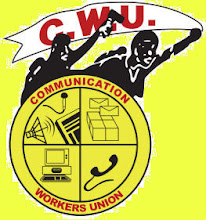Vodacom is one of the most successful companies in Africa. It has the largest mobile phone network in South Africa with over 20 million customers. 51% of South Africans with a mobile phone use Vodacom.
In 2006, it reported an increase in profits of 16% and made close to 5 billion Rand in South Africa alone.
Vodacom is still in the last century when it comes to treating its workers. Workers at Vodacom do not think they are promoted, treated or paid based on their ability or contributions to the company. Instead, most feel that race is still the determinant factor when it comes to pay, promotions and treatment.
Some workers report that Vodacom has decided to ignore the laws of South Africa and instead made its own rules when it comes to maternity leave. Other workers are forced to give money back to the company when it decides they have been sick for too long. The company has two sets of disciplinary procedures, denying all employees hired after April of 2003 their rights to refer their cases to the established labour authorities.
In call centres, several shifts end late at night or in the early hours of the morning. For example, a worker ending a shift at 2:00 am, has no choice but to undertake a dangerous walk home or wait at work idly, where employees are forbidden from sleeping, until sunrise. A few hours later, the worker will be expected back.
Just 1% of Vodacom's profits for 2006 could increase wages for all employees by around 1,000 Rand per month. For Customer Care Representatives making less than 5,000 per month, this could mean a substantial 20% increase, which would help empower workers who are mostly from previously disadvantaged groups, and make sure that the economic success of companies like Vodacom is shared by the whole population instead of being reserved for a tiny elite.
For years, workers have tried to negotiate conditions of employment more suitable to the times.Yet, instead of dialogue, Vodacom managers have unleashed a campaign of terror against employees. The Communication Workers Union (CWU) is a banned organization within the company. Every day, hundreds of workers at Vodacom who are members of CWU go to work in fear that they will be attacked for being union members. Every week, dozens of workers are called for "disciplinary hearings," where they are threatened, intimidated and/or disciplinied in exaggerated ways. The company has also decided to "fine" many workers who join CWU by ilegally deducting from their pay dues for another union that they are not members of. Vodacom has apparently decided it can tell employees which organizations they can be members of, and which are unacceptable.
The company is also using a "Consultative Committee," dominated and controlled by managers, to spy on workers who dare speak out against exploitation and to pressure employees to reject CWU.
Vodacom has betrayed every agreement with the workers.Despite Vodacom's war of terror against CWU, the union grows in membership every day. Yet, the company has created a situation to guarantee that workers are never able to negotiate with management.
In 1999 Vodacom and CWU signed an agreement allowing the union to carry out activities within company premises, as well as stop order facilities. During the last eight years, the company has broken every clause of the agreement.
The company states that the union must reach a threshold of representativity before it can be taken seriously, but then makes sure that the threshold can never be reached. Vodacom refuses to acknowledge employees that join the union and refuses to deduct dues from them. Instead, they deduct randomly from employees without providing lists of members from whom deduction are being made to the union. Promotions are dangled in front of employees as long as they agree to leave the union. Whenever the union nears the threshold of representativity, the company moves the goalpost by absorbing subsidiaries, hiring more permanent staff and otherwise inflating the numbers of staff. In these circumstances, the threshold can never be physically reached. Vodacom mustb be compelled to play fair and abide by South African law. More importantly, what organizations the employees support or are members should be none of the company's business.
Hundreds of workers at Vodacom have decided that it is time for justice. Given the company's extremist position against unions and the new laws of South Africa, workers have decided to initiate a campaign of pressure actions to bring Vodacom to the negotiating table, including legal refusal to work if the company insists on maintaining its hard line.
We realize the inconvenience to customers, franchise holders and the rest of the South African people that a strike provoked by the company will cause. We believe that our country deserves better, that the customers we interact with every day deserve better. We don't believe that the franchise owners and other stakeholders should be punished for the bad decisions of some misguided managers who live in the past. However, we are ready to do whatever it takes to make sure that Vodacom respects South African laws, ceases to treat some employees like inferior human beings and allows employees to join organisations of their own choosing.


2 comments:
I thought you would like to know that the subject of the Vodacom strike has been raised on the http://mybroadband.co.za/vb/ consumer forum - which deals with broadband, phones and all telecomms issues.
You may know that the forum has a Vodacom representative on it most of the time.
It would be nice to see comments from any employees appear on the site.
Please update us on the strike issue, if there will be a strike let everybody know, you surely have all the names of the union members.
Post a Comment